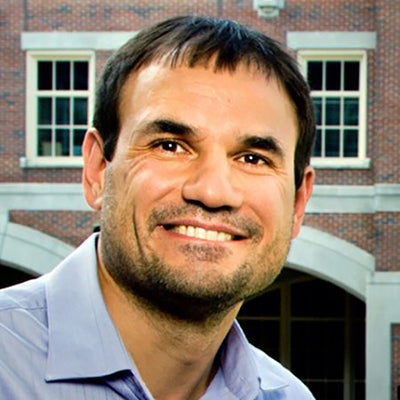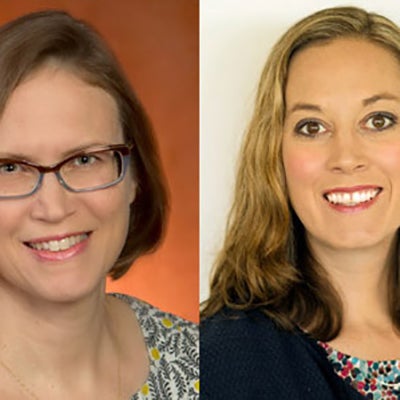Hurricane Florence, the strongest hurricane to hit Carolinas in two decades, has shown the vulnerability of older adults when faced with storm-driven evacuations. Among over 30 deaths linked to the hurricane, two-thirds have been older than 55. A number of these deaths were of older adults who died in or around their houses.
News
News Listings
Are seniors more vulnerable to fraud?
Given the number of scams that seem to target seniors specifically, a very reasonable scientific question is whether seniors are more at risk for fraud susceptibility than their younger counterparts (middle-aged, young adults). This has proven difficult to research for a number of reasons. My interest in this question was piqued by a series of fraud attempts that hit me within months of turning 65 years old.
Walter Boot honored with APA’s Earl Alluisi Award for Early Career Achievement
Walter Boot, right, receives the award from Robert Proctor, president of Division 21 (Applied Experimental and Engineering Psychology) of the American Psychological Association.
Congratulations to ISL Faculty Affiliate Walter Boot, who has been honored with the Earl Alluisi Award for Early Career Achievement, given by Division 21 (Applied Experimental and Engineering Psychology) of the American Psychological Association.
Fourth Annual Post-Acute and Long-Term Care Symposium
The Institute for Successful Longevity is a co-sponsor of the Fourth Annual Post-Acute and Long-Term Care Symposium, August 17 at Westminster Oaks in Tallahassee.
Antonio Terracciano named a Fellow of the Gerontological Society of America
Congratulations to Antonio Terracciano, a Faculty Affiliate of the Institute for Successful Longevity and an associate professor in the Department of Geriatrics in FSU’s College of Medicine, who has been named a Fellow of the Gerontological Society of America.
Faculty Affiliates awarded ISL Planning Grants
Congratulations to the ISL Faculty Affiliates who have been awarded planning grants from the Institute for Successful Longevity.
The ISL Planning Grants support research in a new direction or provide continuing support of existing research with the goal of improving the opportunity for successful longevity.
Two ISL Faculty Affiliates among FSU Fulbright Scholars for 2018-19
Anne Barrett and Miles Taylor, both Faculty Affiliates of the Institute for Successful Longevity, are among the eight Florida State University faculty members who have earned grants from the Fulbright Scholar Program this year.
International Association of Applied Psychology honors Amy Ai for contributions to health psychology
Amy Ai, professor in Florida State University’s College of Social Work and a Faculty Affiliate with the Institute for Successful Longevity, has been honored by the International Association of Applied Psychology (IAAP) for her long and distinguished history of scientific contributions to health psychology.
Using Artificial Intelligence to help older adults and others
The progress of technology in leaps and bounds has resulted in the generation of an enormous amount of digital data in the modern era. Against this backdrop, artificial intelligence (AI) has emerged as a useful mechanism to automatically organize and categorize data and to leverage useful patterns in the data to make intelligent predictions for the future from past observations.
Neil Charness receives two honors for a career of work on longevity and technology for older adults
Neil Charness, the William G. Chase Professor of Psychology and director of FSU’s Institute for Successful Longevity, has received two honors for a career of work on longevity and on technology for older adults.























